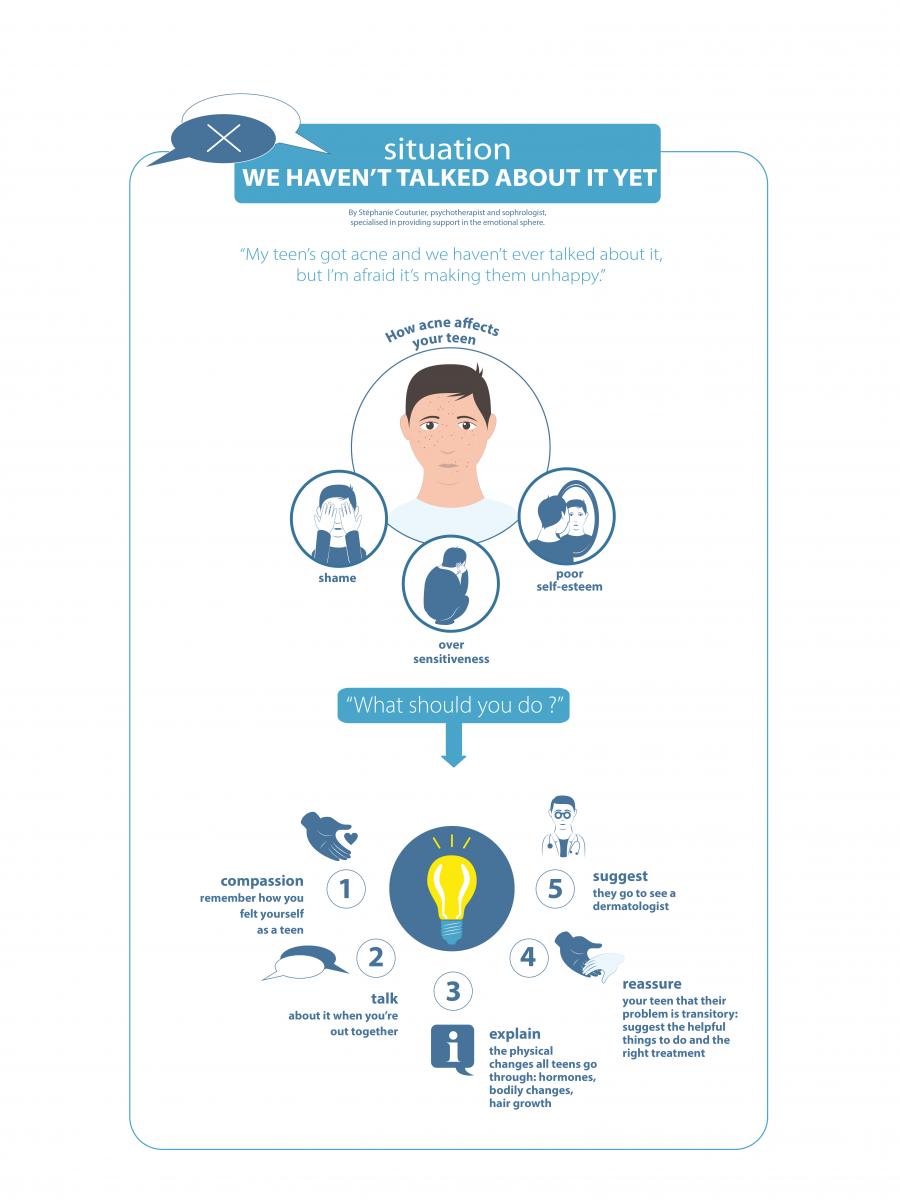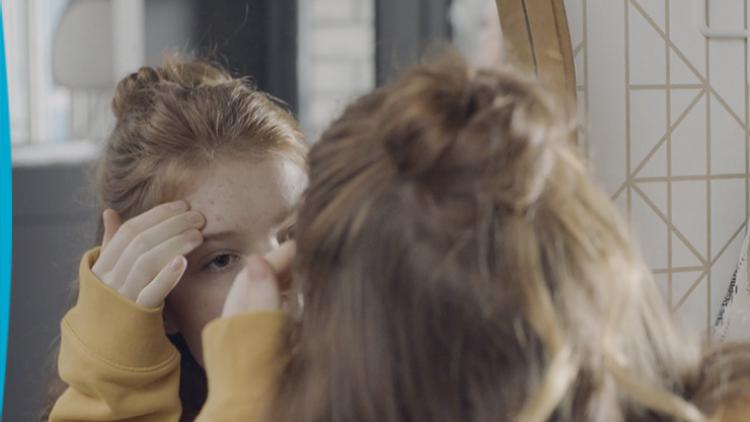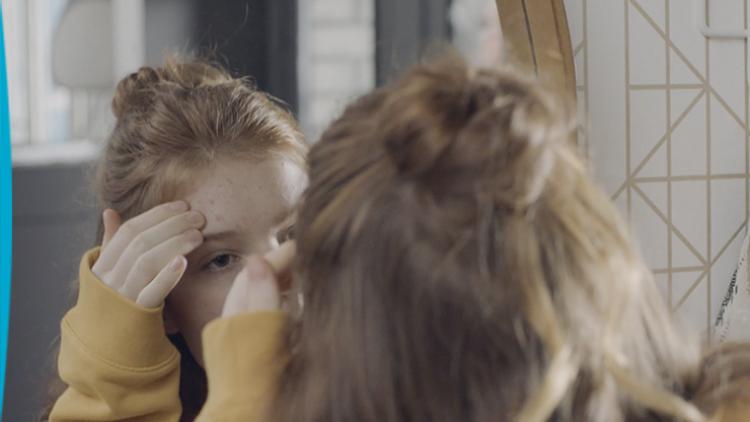My teen's got acne : We haven't talked about it yet
My teen's got acne but we haven't ever talked about it.
How should I approach the subject?
The teen years, and especially puberty, are a time of sweeping changes that, in a very short time, completely transform a teen's body and sense of self. There is a rush of hormones, growth gets a spurt on, the sex organs develop, your teen becomes moody and sensitive.
Teenagers lose all of their bearings and enter a great period of self-development. And as their self-confidence becomes shaky, the way other people see them becomes important and often upsets them. That's why, during this period, teenagers really like to blend into the group, into the tribe of young people their age! If you look at teenagers in their group of friends, you'll notice that they are often all dressed alike. The group image temporarily replaces the teen's self-image.
Except that, in order to blend into the group, they have to adopt the same codes and, if possible, not stand out from the crowd. And this is where the appearance of acne can make things complicated. Teens' self-image becomes shaky and may even deteriorate. They can start to feel embarrassed or ashamed. Parents should be careful not to underestimate this experience.
Remember what it was like at that age.
Remember the ambivalence between how you felt and how you looked. Remember the gradual emergence of wanting to be liked and admired.
At this time of their lives, teens feel as if everyone is watching them and they watch everyone around them. The image they present to others becomes one of their main everyday concerns! They are constantly checking themselves in the mirror, change outfit several times a day and suddenly want the latest trendy jumper so they fit the established codes of "cool & well-dressed".
They discover what it's like to desire and to want to be desired. Their references change: they no longer refer to their parents' codes (which they might even suddenly reject), but to the codes of the group they hang out with.
If you can remember how powerful these feelings are, you'll understand that your teen is crossing a rough emotional ocean and that their experience should be handled with love, patience and kindness.
Finding the right time to bring up the subject of acne. Find a time when you'll be alone with your teen and won't be interrupted.
Take advantage of a trip to the shops to go for hot chocolate in a cosy spot; go to see a match together so you can chat in the car on the way home; renovate their room together so you can talk as you work. It's up to you to create a special, pleasant time that is conducive to talking and sharing. Don't forget that your teen is going through a period of hormonal upheaval and will often be very touchy! The form of the discussion will be very important if you want the talk to take place in the right conditions, when your kid can hear what you have to say without feeling criticised (or even attacked).
Broach the subject simply.
"I've noticed that you've got a few pimples. It's probably acne." Without trying to downplay the situation, see how your teen relates to their group of friends. Bring up the topic so that they can share their experience: "Are any of your friends going through the same experience?" "Have you talked about it at all?"
Explain what's happening in your teen's body and tell them what changes are under way.
They are in the middle of puberty! Their body is in a phase of intense hormone production (mainly oestrogens and progesterone for girls and testosterone for boys) which boosts growth in all of its forms: bones and muscles are becoming longer, they are growing pubic hair and their sex organs are developing. Their body is getting ready to become an adult body. And among these changes, their skin is getting thicker, the pores are becoming blocked and acne is appearing.
Take the opportunity to find out how your kid feels about all the changes they are going through. What bothers them or is unpleasant? What are they worried about?
This is a good time for a chat about these issues, which are often either swept under the carpet or treated as if they were no big deal. You want to get your kid to understand that they are not alone and that they can go to you for help and support if they feel the need.
Reassure them
Acne is a normal part of growing up. It varies a lot from one person to the next and is admittedly unpleasant, but it is a passing phase. While no-one knows how long it will last, today people do know how to curb its appearance and minimise its effects: wash your skin morning and evening with a suitable soap, then treat it with a cream that is recognised for its moisturising and anti-pimple action.
Offer to take your teen to see a dermatologist
Offer to take your teen to see a dermatologist to look into the benefits of a medicinal treatment. Consider all of the options and together choose the strategy best suited to their skin type.
To conclude, it is not easy to talk about this subject because it concerns your teen's privacy and feelings at an age when they are breaking away from their parents and becoming their own person. However it is also a good way to reassure them that you are there to help them, to build a bond of trust and to open up a new area of communication.
Your teen will understand that patience and a positive approach to themself will be the best solution for coping with this non-negotiable part of themself and negotiate the ups and downs of this transition into the adult world.
To cope with the trials of everyday life, your teen still needs you. That's why DUCRAY is by your side. Visit ducray.com for expert advice and a range of dermatologist-approved and recommended skincare products.



